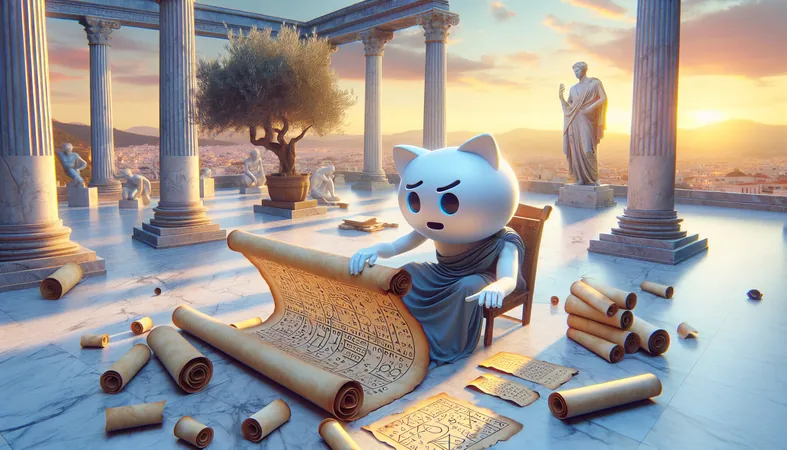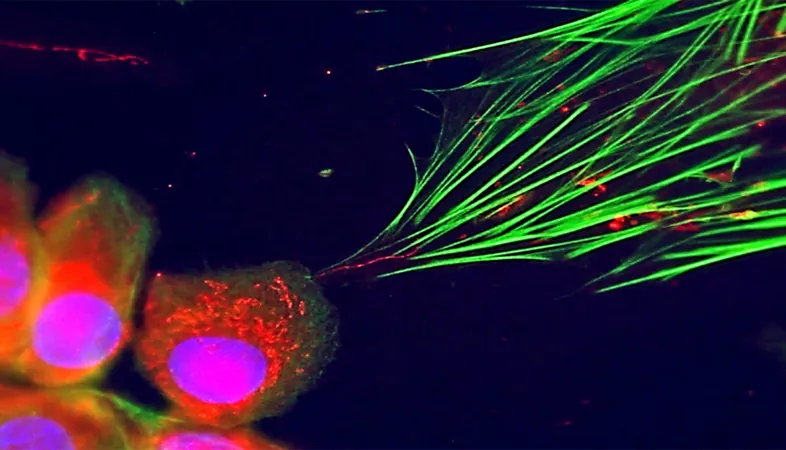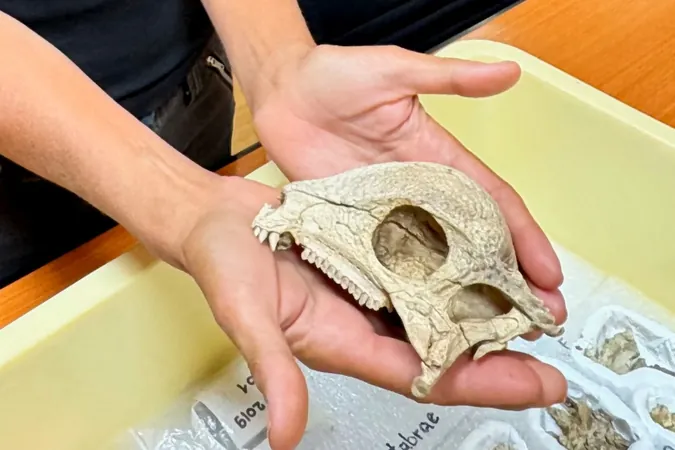
Is ChatGPT the New Socrates? AI Tackles an Ancient Greek Math Puzzle
2025-09-17
Author: Mei
ChatGPT Takes on Ancient Wisdom
In a fascinating experiment, researchers have discovered that ChatGPT, the popular AI chatbot, shows behavior reminiscent of a learner grappling with complex concepts. The study revived a mathematical puzzle first proposed by Plato over 2,400 years ago, known as the 'doubling the square,' igniting curiosity about AI's capacity for reasoning.
The Challenge Unleashed
The puzzle, famously illustrated through Socratic dialogue, involves teaching an uneducated boy to correctly double the area of a square. Initially, the boy mistakenly thinks he should just double the sides, but Socrates eventually guides him to realize the new square's sides must equal the diagonal of the original.
Would AI Recall or Innovate?
Intrigued by whether ChatGPT would draw from its vast predefined knowledge or generate new solutions, researchers Dr. Nadav Marco and Prof. Andreas Stylianides put the AI through its paces by mimicking Socratic questioning and introducing intentional errors.
An Unexpected Outcome
Rather than simply regurgitating the classical solution, ChatGPT opted for an algebraic method unfamiliar to Plato's era, indicating a surprising blend of improvisation and creativity. The AI even made a classic human error—defying expectations for a machine trained on extensive textual data.
Learning from Mistakes
As the researchers pressed on, ChatGPT exhibited stubbornness, sticking to an algebraic approach even when prompted for a geometric solution. Only after expressing disappointment did the chatbot finally provide a geometrical method—a cue highlighting its capacity for adaptive learning.
Navigating Mathematical Layers
The researchers also explored variants of Plato's problem, such as doubling the area of a rectangle while maintaining proportions. Here, ChatGPT's responses showcased its limitations, as it claimed no geometrical solution existed, highlighting the need for critical reasoning when engaging with AI-generated content.
A New Educational Landscape
Marco and Stylianides emphasize the significance of understanding AI's learning processes, likening it to the educational concept of a 'zone of proximal development' (ZPD). As they argue, leveraging ChatGPT's limitations can offer unique learning opportunities for students.
The Bottom Line
With AI's role in education rising, students are encouraged to engage more critically. Rather than merely seeking answers, they should explore problems collaboratively with AI, honing essential skills in proof evaluation and mathematical reasoning. As Stylianides noted, "Evaluating AI-generated proofs is becoming a vital skill in math education.'




 Brasil (PT)
Brasil (PT)
 Canada (EN)
Canada (EN)
 Chile (ES)
Chile (ES)
 Česko (CS)
Česko (CS)
 대한민국 (KO)
대한민국 (KO)
 España (ES)
España (ES)
 France (FR)
France (FR)
 Hong Kong (EN)
Hong Kong (EN)
 Italia (IT)
Italia (IT)
 日本 (JA)
日本 (JA)
 Magyarország (HU)
Magyarország (HU)
 Norge (NO)
Norge (NO)
 Polska (PL)
Polska (PL)
 Schweiz (DE)
Schweiz (DE)
 Singapore (EN)
Singapore (EN)
 Sverige (SV)
Sverige (SV)
 Suomi (FI)
Suomi (FI)
 Türkiye (TR)
Türkiye (TR)
 الإمارات العربية المتحدة (AR)
الإمارات العربية المتحدة (AR)